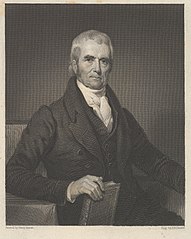More on Baze v Rees
 As Bridget said in the comments to yesterday’s post about the US Supreme Court’s decision in the death penalty case, Baze v Rees:
As Bridget said in the comments to yesterday’s post about the US Supreme Court’s decision in the death penalty case, Baze v Rees:
Intellectual commentary might come later.
Here’s my first try. …
 As Bridget said in the comments to yesterday’s post about the US Supreme Court’s decision in the death penalty case, Baze v Rees:
As Bridget said in the comments to yesterday’s post about the US Supreme Court’s decision in the death penalty case, Baze v Rees:
Intellectual commentary might come later.
Here’s my first try. …
 On the day when the President of the United States welcomes the Pope to the White House, the long-awaited decision of the US Supreme Court on the compatibility of the lethal injection with the Eighth Amendment to the US Constitution has been handed down. In Baze v Rees, the challenge failed by a vote of 7 to 2 and the decision below (217 S. W. 3d 207 (2007)) was upheld; but the 7 is a fractured majority (I have previewed this case here and here; for full analysis, see the ScotusWiki page on the case; for initial news reaction, see NPR).
On the day when the President of the United States welcomes the Pope to the White House, the long-awaited decision of the US Supreme Court on the compatibility of the lethal injection with the Eighth Amendment to the US Constitution has been handed down. In Baze v Rees, the challenge failed by a vote of 7 to 2 and the decision below (217 S. W. 3d 207 (2007)) was upheld; but the 7 is a fractured majority (I have previewed this case here and here; for full analysis, see the ScotusWiki page on the case; for initial news reaction, see NPR).
Roberts CJ, joined by Kennedy and Alito JJ, concluded that Kentucky’s lethal injection protocol satisfies the Eighth Amendment. In their view, allowing a condemned prisoner to challenge a State’s execution method merely by showing a slightly or marginally safer alternative found no support in the Court’s cases, that it would embroil the courts in ongoing scientific controversies beyond their expertise, and that it would substantially intrude on the role of state legislatures in implementing execution procedures. As a consequence, they held that the petitioners had failed to demonstrate the necessary substantial risk of serious harm, and that Kentucky’s protocol did not constitute an unconstitutional “cruel and unusual” punishment.…
 I have blogged already (here and here) about the Statute Law Revision Act, 2007. If imitation is the sincerest form of flattery, then the Oireachtas should feel very flattered indeed.
I have blogged already (here and here) about the Statute Law Revision Act, 2007. If imitation is the sincerest form of flattery, then the Oireachtas should feel very flattered indeed.
Earlier this year, the Law Commissions of England and Wales and of Scotland published their 18th report in a series of proposed statute law repeals (pdf) (hat tip: Slaw). The Statute Law (Repeals) Bill was introduced into the House of Lords on Wednesday 27 February 2008 by Lord Hunt of Kings Heath. On the day that NPR reports that State Representative Byron Rushing (Dem) is mounting an effort to repeal out-of-date laws in Massachusetts comes news that the UK’s Bill received its second reading today in the House of Lords. …
 Surprisingly, according to WordPress Blog Stats, the most popular page on this blog yesterday was The Future of Irish Legal Education, about the second annual Legal Education Symposium hosted by UCC‘s Faculty of Law and sponsored by Dillon Eustace Solicitors. Now, either this blog really does have a serious reader or two, or I need another stats package. Even if the latter is more likely, just in case the former is true, here are two more developments (heading, inevitably, in opposite directions) for the Legal Education junkie(s) out there.
Surprisingly, according to WordPress Blog Stats, the most popular page on this blog yesterday was The Future of Irish Legal Education, about the second annual Legal Education Symposium hosted by UCC‘s Faculty of Law and sponsored by Dillon Eustace Solicitors. Now, either this blog really does have a serious reader or two, or I need another stats package. Even if the latter is more likely, just in case the former is true, here are two more developments (heading, inevitably, in opposite directions) for the Legal Education junkie(s) out there.
First, Stephen Griffin of Tulane, writing on Balkinization under the heading The Carnegie Report: Can Legal Education Be Reformed? discussed subjecting the Carneige Foundation‘s report on Educating Lawyers: Preparation for the Profession of Law (which I have discussed here and here on this blog – the second post discusses the recent Future of Legal Education Conference | excellent blog analysis here | papers here) to detailed analysis and finding it wanting. …
 It’s amazing how things come together sometimes. On the same day that I see an episode of Boston Legal in which an important sub-plot has a chronic gambler sue a Las Vegas casino for her losses, I read about two examples of life imitiating … well, if not art exactly, then at least entertaining television.
It’s amazing how things come together sometimes. On the same day that I see an episode of Boston Legal in which an important sub-plot has a chronic gambler sue a Las Vegas casino for her losses, I read about two examples of life imitiating … well, if not art exactly, then at least entertaining television.
First, there was a story about a real-life US case in which a chronic gambler (a lawyer who should know better) is suing a Las Vegas casino for her losses. Perhaps she was influenced by this episode of Boston Legal? There, the gambling plaintiff won an excellent settlement (and the image above is of her really rather odd lawyers celebrating their unlikely victory, click on it – if you date – for more images from that episode).
Second, not too long after reading about the US lawsuit, I read a message from Prof Charles Mitchell on the Obligations Discussion Group that
…in Calvert v William Hill Credit Ltd [2008] EWHC 454 (Ch) (12 March 2008) … Briggs J has declined to make a bookmaker liable for the economic loss suffered by a compulsive gambler who placed bets with them. On the facts a duty of care was owed (some interesting discussion of similar Australian cases) and the duty breached, but the claim failed on causation: the defendant only owed a duty to take care to ensure that the claimant implemented a self-exclusion arrangement, and even if this had been done, the claimant would have gone to another bookmaker and lost all his money there instead.
 On this day (hat tip: ScotusBlog) in 1819, Chief Justice Marshall (left) delivered the decision of the US Supreme Court in McCulloch v Maryland 17 US (4 Wheat) 316 (1819) (findlaw | Landmark Cases | wikipedia), holding that the US Federal Government had the power to establish the Bank of the United States, and in the process laying down some fundamental constitutional doctrine which underpins many of the world’s constitutions today – not only the US, but the Irish as well. In particular, he asserted that
On this day (hat tip: ScotusBlog) in 1819, Chief Justice Marshall (left) delivered the decision of the US Supreme Court in McCulloch v Maryland 17 US (4 Wheat) 316 (1819) (findlaw | Landmark Cases | wikipedia), holding that the US Federal Government had the power to establish the Bank of the United States, and in the process laying down some fundamental constitutional doctrine which underpins many of the world’s constitutions today – not only the US, but the Irish as well. In particular, he asserted that
… we must never forget that it is a constitution we are expounding (17 US (4 Wheat) 316, 407 (1819) (Marshall CJ) emphasis in original).
A recent conscious Irish echo of this dictum is to be found in the judgment of Barrington J in Irish Times v Ireland [1998] 1 IR 359, [1998] 2 ILRM 161 (2 April 1998) (doc | pdf) [151], where he asserted that
… it is important to remember that we are construing, not a revenue statute, but a constitution.
The trope that a constitution is not to be interpreted as a revenue statute is a common one. For example, in National Union of Railywaymen v Sullivan [1947] IR 77 (HC) 88 Gavan Duffy J held that a Constitution is “emphatically not to be parsed as if it were an Income Tax Act”; whilst in AG v Paperlink [1984] ILRM 373, 385; [1983] IEHC 1 [45] Costello J said that the Constitution is “a political instrument as well as a legal document and in its interpretation the courts should not place the same significance on differences of language used in two succeeding sub-paragraphs as would, for example be placed on differently drafted sub-sections of a Finance Act” (see also Murray v Ireland [1985] IR 532 (SC) 539 (Costello J)).…
 There has been much debate of late over on Law School Innovation arising out of the American Association of Law Schools‘ recent annual conference on the theme of Reassessing our Role as Scholars and Educators in Light of Change. The LSI debate has been focussed in particular on the Plenary Session on Rethinking Legal Education for the 21st Century (see eg, here (including mp3 of the session) and here), which covered similar issues to those raised in my recent post Legal Education, again. To take one example, there was an interesting discussion of the Carneige Foundation‘s report on Educating Lawyers: Preparation for the Profession of Law (which I have discussed on this blog). Again Douglas Berman has proposed a hierarchy of goals for law school instruction and serving students:
There has been much debate of late over on Law School Innovation arising out of the American Association of Law Schools‘ recent annual conference on the theme of Reassessing our Role as Scholars and Educators in Light of Change. The LSI debate has been focussed in particular on the Plenary Session on Rethinking Legal Education for the 21st Century (see eg, here (including mp3 of the session) and here), which covered similar issues to those raised in my recent post Legal Education, again. To take one example, there was an interesting discussion of the Carneige Foundation‘s report on Educating Lawyers: Preparation for the Profession of Law (which I have discussed on this blog). Again Douglas Berman has proposed a hierarchy of goals for law school instruction and serving students:
Law school instruction and serving students should be focused on…
5. helping students pass the bar
4. helping students get better grades
3. helping students learn doctrines and skills needed to be competent lawyers
2. helping students develop insights and abilities needed to be outstanding lawyers
1. helping students enhance talents and options needed to be flourishing professionals.
I’m not convinced that this list would apply without modification in a non-US law school.…
![]() Part V of the Solicitors (Amendment) Act, 1994 (also here) governs qualifying for admission as a solicitor in Ireland. Amending section 24 of the Solicitors Act, 1954 (also here), section 40 of the 1994 Act provides that
Part V of the Solicitors (Amendment) Act, 1994 (also here) governs qualifying for admission as a solicitor in Ireland. Amending section 24 of the Solicitors Act, 1954 (also here), section 40 of the 1994 Act provides that
a person shall not be admitted as a solicitor unless
…
(e) he has satisfied the Society [ie, the Law Society of Ireland] that he is a fit and proper person to be admitted as a solicitor.
In the Australian state of Victoria, the equivalent legislation [section 1.2.6 of the Legal Profession Act, 2004] requires that the person be “currently of good fame and character”. Moreover, in both Ireland and Vitoria, there is elaborate machinery to strike a solicitor off for alleged misconduct. I learn from The Legal Soapbox (an entertaining Australian blawg, and one of my favourites) that the Victoria provisions have recently featured in case which is a cautionary tale for all students wishing one day to be admitted to practice as solicitors. …
© cearta.ie 2025. Powered by WordPress